Naturopathy for Depression and Anxiety Treatment
- Toronto, ON
- »
- Naturopathic Treatment
- »
- Depression and Anxiety
- Women’s Health and Wellness
- Men’s Health and Wellness
- Mental Health Treatment
- Integumentary System, Skin Diseases
- Endocrine Conditions
- Cardiovascular Conditions Treatment
- Autoimmune Disorders, Immune System Conditions
- Respiratory System Conditions
- Rheumatic, Musculoskeletal Diseases
- Gastrointestinal Conditions
- Neurological Conditions, Pain Management

Naturopathy Practitioners for Depression and Anxiety Treatment
Naturopathy Treatments of depression and anxiety prescribed by naturopath doctors at health center are tailored to each patient. Natural doctors (NDs) take the lead by using non-invasive treatments to help the body recover normal function.
Our Naturopathy Doctors at “Toronto Naturopath Osteopath Clinic” are primary health care physicians who have additional training in naturopathic medicine and therapies. They have extensive training in anatomy, physiology, and pathology, as well as in the use of natural therapies. When medicine is essential, genetic testing might reveal which drugs work best with minimal negative effects.

Understanding Anxiety Disorders: Types, Symptoms, and Treatment at Toronto Naturopath Osteopath Clinic
Anxiety disorders are a class of mental health conditions that can have a major impact on an individual’s life. Its an emotion that most people experience at some point in their lives. Anxiety is a normal and natural emotion, however when it becomes excessive or irrational, it can be extremely debilitating. It is important to understand the different types of anxiety disorders and their symptoms in order to identify them and seek treatment. There are different types of anxiety disorders such as
- Generalized Anxiety Disorder,
- Panic Disorder,
- Obsessive-Compulsive Disorder (OCD),
- Post-Traumatic Stress Disorder (PTSD),
- Social Anxiety Disorder
- Separation Anxiety Disorder
Symptoms of Anxiety Disorder
Anxiety disorders are a common mental health condition that can affect people of all ages and backgrounds. Symptoms of anxiety can range from mild to severe, with different types of anxiety disorder having distinct sets of symptoms. Most common anxiety signs and symptoms include:
- Feeling nervous, restless or tense.
- Having a sense of impending danger, panic or doom.
- Having an increased heart rate.
- Breathing rapidly (hyperventilation)
- Sweating.
- Trembling.
- Feeling weak or tired.
- Trouble concentrating or thinking about anything other than the present worry.

Symptoms of Depression
Depression is a serious mental health issue that can affect anyone at any time. It is characterized by feelings of sadness, hopelessness, and fatigue that last for long periods of time. Knowing the symptoms of depression is important in identifying it as well as seeking professional help. Most common symptoms associated with depression may include:
- Feelings of sadness, tearfulness, emptiness or hopelessness
- Angry outbursts, irritability or frustration, even over small matters
- Loss of interest or pleasure in most or all normal activities, such as sex, hobbies or sports
- Sleep disturbances, including insomnia or sleeping too much
- Tiredness and lack of energy, so even small tasks take extra effort
- Reduced appetite and weight loss or increased cravings for food and weight gain
- Anxiety, agitation or restlessness
- Slowed thinking, speaking or body movements
- Feelings of worthlessness or guilt, fixating on past failures or self-blame
- Trouble thinking, concentrating, making decisions and remembering things
- Frequent or recurrent thoughts of death, suicidal thoughts, suicide attempts or suicide
- Unexplained physical problems, such as back pain or headaches
Integrative Medicine Treat Anxiety, Depression and Stress
Anxiety and Severe Depression may have a broad range of root causes. Such as
Genetic Predisposition, Understanging Genetic Makers:
Taking into account a patient’s genetic markers and pathways allows for more individualised therapy. Single nucleotide polymorphisms (SNPs), are a prevalent kind of genetic variation (SNP). The effects of SNPs on the synthesis and breakdown of compounds such B vitamins, hormones, minerals, and neurotransmitters may be gleaned by an examination of their distribution patterns. Potentially helpful in formulating therapeutic strategies.
Neurological imbalance:
Anxiety may be caused, in part, by a chemical imbalance in the brain, which aids in mood regulation. Your ND will test your levels of serotonin, gamma-aminobutyric acid (GABA), and norepinephrine to see whether there is an imbalance. Anxiety disorders are conditions that affect the way the brain works and can cause feelings of worry or fear. Researchers use brain scans and study people’s genes and hormones to understand more about anxiety disorders and how they can be treated.
Digestive system and the microbiota:
Disruption of the digestive system and the microbiota: The bacteria that live in your digestive system, called the microbiome, helps maintain a healthy neurological, hormonal, and immunological system. If there are problems with the microbiome, it can affect your digestion and overall health. Your ND may ask for a test to check the health of your digestive system and may talk to you about your diet and any possible food sensitivities or nutritional deficiencies. To determine how well your digestive system is functioning, your ND may request a stool analysis. In-depth discussions about your diet and possible diagnostic tests for food sensitivities and nutritional deficiencies are also to be expected.
Hypothalamic-pituitary-adrenal axis (HPA) dysfunction:
The HPA axis is a system in your body that helps you respond to stress. If you experience a lot of stress over a long period of time, your adrenal glands may produce too much of the hormone cortisol in an irregular pattern. This can happen for a variety of reasons, such as problems with blood sugar levels, not getting enough sleep, consuming too much caffeine, exposure to toxins, or allergies. Your ND may ask for tests to check for it.

Protect and Enhance the Digestive System:
The value of a balanced and varied diet, as well as probiotic supplements, has been corroborated by studies looking at the biological roots of stress, fear, and anxious behaviours. The extensive training that NDs get in clinical nutrition allows them to successfully treat food sensitivities, leaky gut, and other related conditions.
Utilize Herbal and Nutritional Supplementation Aid in Fixing the Damage
Naturopathic doctors (NDs) use a wide variety of nutritional and botanical remedies with a calming impact to treat and manage anxiety and panic disorders. The effectiveness and safety of these procedures are carefully considered for each individual patient. Naturopathic approach Supplementation like GABA, L-theanine, passionflower, Scutellaria lactiflora (skullcap), hops, Piper methysticum (kava), lavender, adaptogens such Withamnia Somnifera (ashwagandha), lithium orotate, omega-3, and magnesium are helpful.
Behavioral Medicine May Help with Stress Management
Naturopathic doctors (NDs) are educated to look at your overall health in the big picture, taking into account factors like your habits, culture, and environment when making diagnoses. Evidence-based behavioural therapy and mind-body medicine are prescribed after a thorough evaluation of factors including the patient’s diet, stress levels, sleep patterns, exercise habits, and other lifestyle choices. Meditation, yoga, breathing exercises, gradual muscle relaxation, therapeutic exercise, and biofeedback are all examples.
Natural Medicines Helps Prevent Depression and Anxiety
For patients suffering from depression and anxiety disorders such as perimenopausal anxiety, post-traumatic stress disorder (PTSD), obsessive-compulsive disorder (OCD), or panic disorder, NDs may choose to examine and implement additional techniques and treatment plan.

Neurotransmitter Balance
Your brain produces chemicals called neurotransmitters, which control how your brain functions. Some of the neurotransmitters that might affect your disposition include GABA, dopamine, epinephrine, and norepinephrine. Maintaining a healthy level of neurotransmitters depends on having enough protein-making components available.
Brain chemicals called neurotransmitters are generated from amino acids. L-tyrosine, threonine, 5-hydroxytryptophan, and glycine are amino acids that, when consumed, contribute to elevated emotional states by providing the body with precursors of the neurotransmitters serotonin, dopamine, and glutamate. When used together, amino acids may be an efficient bridge therapy for individuals with mild to severe depression who are not responding to their current treatment or who want to cease medication. Essential amino acids include tyrosine, tryptophan, and glutamic acid. Vitamin B6 and magnesium are also required for the synthesis of neurotransmitters in the brain.
St. John’s Wort (Hypericum Perforatum)
St. John’s wort is a bushy plant with yellow flowers that have black spots on the borders of their petals and an odour similar to turpentine. Since Roman times, st. John’s wort extract has been employed in several home treatments and herbal tinctures. The United States and Europe both rely heavily on it to treat patients with mild to moderate depression.
Comprehensive information on the effectiveness of St. John’s Wort as a treatment for depression may be found in a study published by the National Center for Complementary and Integrative Health. The majority of St. John’s Wort research has focused on the drug’s short-term effects.
This botanical medicine is not appropriate for everyone, since it may have negative interactions with other drugs and may not work for some people. Before using any kind of herbal supplement, it’s important to consult with a naturopathic doctor.
5-Hydroxytryptophan
Natural 5-Hydroxytryptophan (5-HTP) is an amino acid that plays a role in the metabolism of tryptophan and serves as a precursor to the neurotransmitter serotonin. In addition to alleviating depressive symptoms, 5-HTP helps people eat less and go to sleep faster. Since 5-HTP enhances serotonin synthesis and release, it may be used to treat disorders where low serotonin levels are suspected to be a contributing factor. Those using antidepressants need to be careful to prevent serotonin syndrome. Griffonia simplicifolia seeds are often used to extract 5-HTP, which is then packaged into 50 mg or 100 mg gelatin or vegetarian capsules.
Vitamin D
Insufficient vitamin D levels are associated with the onset of seasonal affective disorder (SAD). Depressed individuals, especially those with SAD, benefit from increasing their vitamin D levels, according to studies.
It’s been theorised that serotonin levels in the brain rise in response to higher vitamin D intake. Depending on factors including latitude, season, skin type, and sun exposure, the recommended daily intake of vitamin D will vary from person to person. Tolerable upper intake levels for vitamin D according to the National Institutes of Health Office of Dietary Supplements are 2,000 IU for adults and children over the age of 13 and 1,000 IU for children under the age of 1. Research is ongoing to establish new standards for recommended daily vitamin D intake for adults as the importance of proper vitamin D levels becomes more apparent.
Fatty Acids Omega-3
Omega-3 fatty acid-rich foods have been shown to slow the rate at which neurons shed their phospholipid membrane coatings. One research found that “omega-3 medication was followed by structural brain alterations including, in particular, a decrease in the lateral ventricular capacity,” as seen by registered difference pictures. Omega-3 PUFA supplementation has been shown to alleviate depressive symptoms in a 2007 meta-analysis of studies including individuals with major depressive disorder and bipolar disorder. Flax seeds, Chia seeds, walnuts, salmon, soybeans, halibut, sardines, herring, tofu, and winter squash all have high levels of omega-3 fatty acids. Broccoli, cantaloupe, kidney beans, spinach, grape leaves, Chinese cabbage, and cauliflower are just few of the other foods that are rich in omega-3s.
Magnesium in the Diet
Magnesium deficiency has been linked to increased rates of sadness and anxiety. Magnesium-rich foods should be included in the diets of those suffering from depression. These include salmon, barley, artichokes, buckwheat, oat bran, almonds, cashews, pine nuts, black beans, white beans, cornmeal, spinach, broccoli, tomatoes, pumpkin seeds, and soybeans. White flour is made by removing the germ and bran from whole wheat, which are high in magnesium. Chlorophyll molecules contain magnesium at their core, making all green foods good magnesium suppliers.
Vitamins B
The B-complex vitamins, often known as the water-soluble vitamins, play a crucial role in maintaining a healthy mind and body. Vitamin B deficiency has been linked to depression and epilepsy, and “preventive vitamin B supplementation and sufficient intake seem very important for secondary and primary prevention of neuropsychiatric disorders, especially in subjects with a low intake or status of the vitamins,” according to a review of the research. When recommending that a patient take a supplement containing a single B vitamin, it is important to keep in mind that the patient should also take a supplement containing all of the B vitamins.
Toronto Naturopath Osteopath Clinic Services

Women’s Health and Wellness
Naturopathic doctors often specialize in women’s health and wellness, providing preventive care and support for women during all stages of life.
- Boost Fertility Naturally
- Prenatal and Postnatal Development
- Infertility Treatment
- Menopause and Depression
- Anxiety and Depression
- Mental Health
- Endometriosis Treatment
- Acne and Eczema
- Uterine Fibroids, Back Pain
- Leaky Gut Syndrome
- Weight Loss
- HPV and Cervical Treatment
- Bacterial Vaginosis Treatment

Men’s Health and Wellness
Men’s health and wellness is vitally important. Not only does the health of men directly affect their families, but it also has a significant impact on society as a whole.
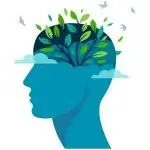
Mental Health
Holistic approach may be particularly beneficial for people with mental health concerns, as it can help to address the underlying causes of their symptoms.
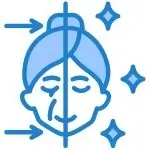
Integumentary System, Skin Conditions
Naturopathic doctor specializes in the integumentary system, which includes the skin, hair, and nails. Naturopathic doctors can treat a variety of skin conditions, such as acne, eczema, and psoriasis.
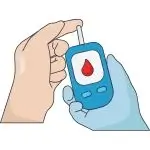
Endocrine Conditions
Some of the most common endocrine conditions that naturopaths help to treat include diabetes, thyroid dysfunction, and adrenal fatigue.

Cardiovascular Conditions
Naturopathic doctors provides holistic care and are able to help people with a wide range of cardiovascular conditions.

Autoimmune Disorders
An immune system condition is any condition that affects the immune system. This can include things like infections, autoimmune diseases, and allergies.

Rheumatologic and Musculoskeletal Conditions
Rheumatologic and musculoskeletal conditions are a type of medical problem that can cause pain, inflammation, and limited movement in the joints.
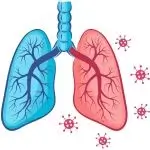
Respiratory System Conditions
A naturopathic doctor (ND) holistic approach that focuses on the whole person, rather than just the symptoms of the illness. Naturopaths believe that the body has an innate ability to heal itself.
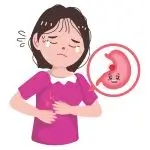
Gastrointestinal Conditions
A naturopathic doctor for gastrointestinal conditions typically uses a variety of natural therapies to help restore the health of the gastrointestinal tract.
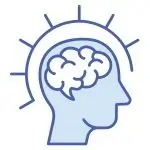
Neurology and Pain Management
Naturopathic doctors are trained in a variety of natural therapies which can be used to help treat neurological conditions. Some of these therapies include botanical medicine, homeopathy, and acupuncture.
If you liked this content and found it to be informative, please rate it.
